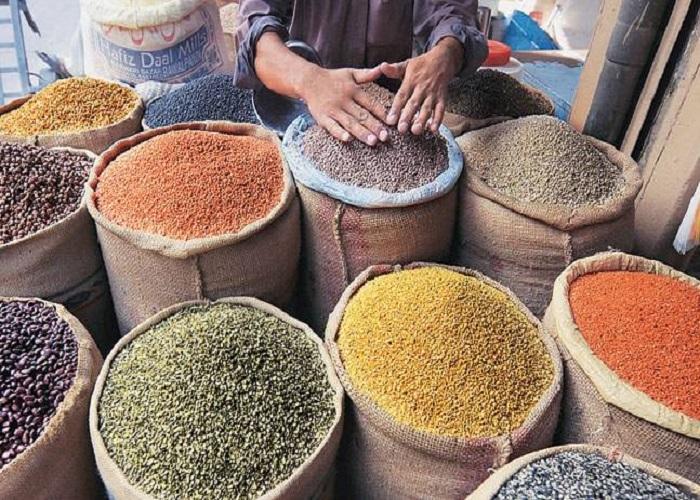Why India Needs a Stronger Essential Commodities Act

Representational image. | Image Courtesy: RSTV
As agribusinesses celebrate the removal of pulses, oilseeds, cereals, etc from the purview of the Essential Commodities Act (ECA), Indian farmers and consumers may not be so jubilant. The government’s advisors, in an attempt to bring more “agri-dollars” to India, may have misled it and opened the doors for cartelisation of these commodities, while dismantling consumers’ and farmers’ only defence against unfair monopolies.
For evidence, we need to look no further than 2015, when Modi Government 1.0 was completing one year in office and the prices of pulses had skyrocketed. Retail prices of Tur/Arhar had climbed to hit over Rs. 200 a kilo in October 2015. After the Income Tax Department investigated the matter, the Rs. 2.5 lakh crore dal scam was unearthed.
A 2,000-page investigation by the Income Tax department, known as the “Appraisal Report in the Case of Pulse Importers and Traders Group” said, “The abnormal price situation in India was created by a coordinated collusive activity orchestrated by few trading and financial entities.” The report found that “physical stocks of pulses [were] cornered in domestic and international markets. Significant long positions on the future were taken on exchanges to create an artificial scarcity at the whole sale and retail levels.”
International agribusiness and grain traders had shrewdly circumvented the Essential Commodities Act, leveraging their overseas presence and created a monopoly by “procuring and hoarding stocks of pulses in national as well as overseas markets”. They manipulated domestic prices to plummet so that they gain the maximum possible from their dal stocks bought at low prices. The super profit earned in this manner was not offered to tax and siphoned off either abroad or converted into unaccounted cash through entry operators. Finally, the treacherous agri-commodity giants got a taste of Indian dals.
It was then that the government, using the ECA, raided and seized over 70,000 metric tonnes (MT) of pulses from hoarders and traders and broke the cartel. The entire supply chain was complicit and in fact the Income Tax department investigated the NCDEX too, for their role in aiding this crisis.
The feat was managed by the involvement of international agri-business, local suppliers and traders, and agri-commodity brokers at the NCDEX. But the government’s advisors are perhaps once bitten yet still not twice shy, and hence they have removed all the barriers to stocking limits etc. So the dal scam can now legally repeat itself, or rather operate, and even past crimes can be absolved.
The curious case of cotton seed:
Cotton is not only a fibrous cash crop but also now an oilseed. Many have raised bio-safety concerns on GMO Bt Cotton seed being blended freely into our edible oils, nevertheless the demand for cotton seed oil is ever-growing. Much like pulses, oilseeds were removed from ECA too. It is almost expected that the government will deregulate cotton seed as well, as it is also an oilseed.
Interestingly enough, the Modi government has had a tryst with Bt cotton monopoly too, where it used the same Essential Commodities Act to prevent unfair business practices and to control the prices of cotton seed. This happened in 2015 and it was done because illegal “trait value” was being charged. The farmers quoting the PPVFRA (or Protection of Plant Varieties and Farmers’ Rights Authority) demanded that the government step in to stop this. As a result, the Competition Commission of India (CCI) had even started an anti-trust investigation into it. The cotton seed sector was valued at Rs. 24.86 billion in India in 2016.
The ECA had repeatedly come to the aid of the Indian government, legal traders, farmers and consumers. Of late, it helped break the cotton seed and dal cartels. However, the safeguard measures of emergency control laid out by the government in the ordinance for protecting different stakeholders is not strong enough.
What the government should do is, first, keep all seeds for sowing under the purview of the ECA and second add clauses to strengthen this law. India’s cotton farmers are already highly indebted and 84% of farmers’ suicides are reported from the cotton-farming belts. No illegal trait fees, royalties, and so on, should be charged and cotton seed should remain under the ECA.
Next, the government needs to study the dal scam and IT department’s findings in the Appraisal Report. We need to bring pulses and oilseeds back under the ECA. By deregulation, we are blindly copying the United States’ post World War-II agricultural policy, which has failed for American farmers and led to the creation of agri-commodity giants. The liberalisation of farm-gate has destroyed farmers not just in the United States, but in Mexico, Brazil, and in each country that has walked the United States line. Indian farmers will be the biggest losers.
And the consumers won’t be far behind either. Once farmers are under control, as we have seen in the United States, consumers gradually feel the burn of such deregulation too. American consumers have experienced the sharpest food inflation as a result of the consolidation by agri-business and trade. India will be no different.
The Modi government must tread carefully and learn from its own experience with the dal and cotton seed scams. And before dismantling the ECA the government must revisit the history of the East India Company, which was the world’s first agri-business trans-national corporation. For what lies ahead is best described by its own Income Tax department’s report: “...a sad commentary on tax compliance behaviour of a global giant who fleeced poor Indian consumers through monopolistic trades and robbed off the exchequer of its legitimate dues. Indulging in unethical, illegal and money laundering activities, [the] Glencore-led cartel seriously threatened the economic security of the country.”
The author is director, policy and outreach, National Seed Association of India. The views are personal.
Get the latest reports & analysis with people's perspective on Protests, movements & deep analytical videos, discussions of the current affairs in your Telegram app. Subscribe to NewsClick's Telegram channel & get Real-Time updates on stories, as they get published on our website.
























